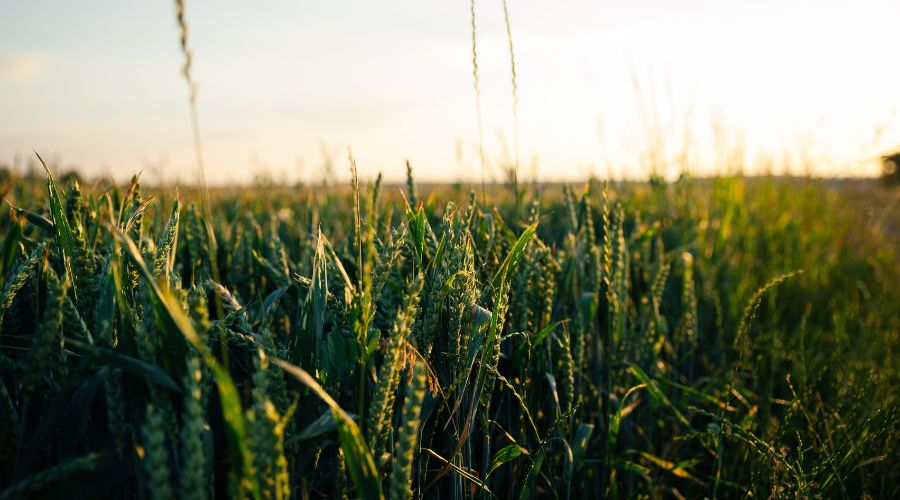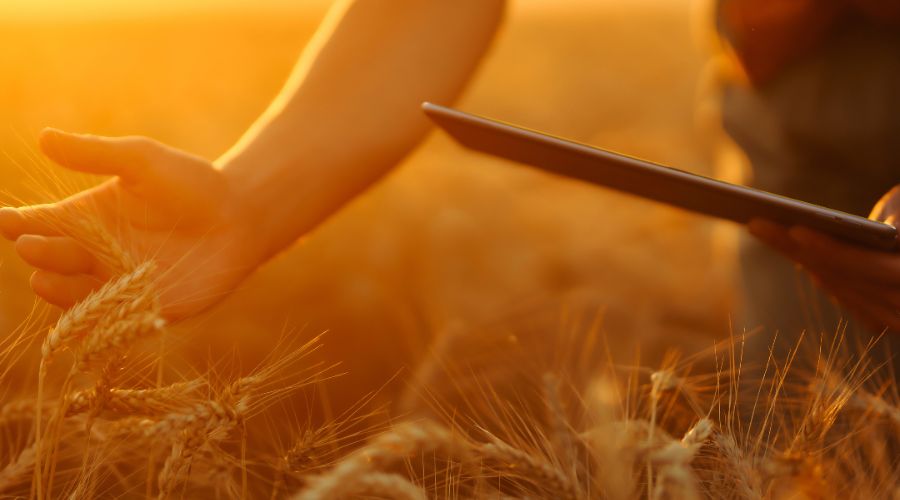How can green fertilisers transform the food system?
24th August 2023
At a time of much uncertainty in UK agriculture, companies like Yara are taking a long and confident view of the future. With construction of a $150 million production facility about to start in the UK plus the development of new green fertilisers and digital tools, Jari Pentinmäki, managing director of Yara UK, thinks there’s cause for optimism.

New green fertilisers and digital tools will give farmers something to consider when assessing their crop yields.
“The new facility will be a production facility for YaraVita, our range of specialist micronutrients and biostimulants,” says Jari. “It will be the largest plant in Britain and one of the largest in the world, reflecting the growth in demand for those particular nutrients not just here but globally.”
The new plant will be located in Howden, just 18 miles south of Yara’s current site at Pocklington. 95% of what is produced will be exported to the European and wider global overseas markets. So why did Yara choose Britain as the home of its new plant?
“We already have the skill and expertise for this kind of production in the UK at our Pocklington site and we really wanted this to continue,” says Jari. “Also, glasshouse testing is done in the UK and if we look at the innovation side of things, we have patents either granted or applied for, for our current operations at Pocklington. This ensures we have a pipeline of new products for continued growth.”
The shift to green fertiliser production

Jari Pentinmäki in his element.
Along with investments in its own growth, Yara is invested in operating according to its mission; to feed the world and protect the planet. The development of green fertiliser is a key part of its plans to transform the food system and reduce carbon emissions.
“Yara premium fertilisers already have a low carbon footprint but their production is currently dependent on fossil fuels,” says Jari. “But this is about to change. This year, Yara is introducing fossil free green fertilisers that are produced using renewable energy sources like water power, instead of fossil fuels like natural gas.”
Switching from natural gas to renewable energy sources will create a more resilient food system that is less dependent on fossil fuels.
“Producing fertiliser using renewable energy sources is enabling an 80-90% reduction in carbon emissions compared to fertilisers made from natural gas,” says Jari. “This allows us to reduce our reliance on fossil fuels and work towards a food system that’s free from carbon emissions.”
Embracing green fertilisers throughout the food chain
To achieve the desired impact, collaboration at all levels of the food system is crucial.
“There has to be collaboration at all levels,” says Jari. “It needs to take place at the industrial level, for example in the setting up of green fertiliser production units, but I think that it’s also very important that the food chain is collaborating. We are very active in building partnerships with food companies, most recently with Simpsons Malt where we were looking at producing low carbon malt for the whisky industry.”
Collaboration is worth it, and the benefits of moving from traditional fertiliser to green fertilisers are substantial.
“Moving to green fertiliser means we are able to reduce the overall footprint of food by about 20%,” says Jari. “It’s quite a substantial reduction. If we take that all the way up to an individual slice of bread, for example, it will be on the market with 12% less carbon footprint.”
Building resilient crops through nutrient management
Coping with climate change is also about producing more resilient crops. As farmers deal with increasingly extreme weather, nutrient management is an important way to cope with changing conditions.
“Farmers are keen to improve nutrient use efficiency (NUE),” says Jari. “Plants need 16 different nutrients and Yara is working to help them optimise those nutrients. By doing so, they can grow crops that are more resilient to climate change.”
The YaraVita range is a crucial tool to help farmers improve NUE.

Climate change continues to drive the need for more resilient crops.
“YaraVita products are crop specific, so farmers can choose products that match their cropping plan,” says Jari. “Applying the products according to our recommendations builds that resilience and can increase yields by between 3 and 9%.”
Biostimulants will also play an important role in the growing of more resilient crops in the future. The biostimulant market is growing by around 12% year on year, and Yara already has five products available in the UK.
“We are continuously developing our biostimulant portfolio and a lot of our effort goes into looking at how biostimulants and crop nutrition products are working together,” says Jari. “We want to be a holistic solution provider that looks at the entire system of crop nutrition, not just one product at a time.”
Digital tools are ready for testing
An increasingly important part of improving resilience to climate change on farm is data. Yara has developed its own digital tools such as Atfarm, N Sensor, and N-Tester to help farmers make good management decisions. The advice for farmers? Start testing them and see how they work for you.
“I would encourage farmers to start testing these tools which are freely available at the moment,” says Jari. “So for example, if you want to optimise your nitrogen application, you can download these apps and start testing how they could help you produce a good harvest and reduce your application rate by ensuring you apply it in the right place in the field.”

Yara is keen for farmers to test the new digital tools available to them.
A well-rounded package
For farmers and agronomists who want to take a holistic approach to nutrient management, Yara has the solutions.
“We have a whole suite of fertiliser products from nitrate products to micronutrients, and now biostimulants as well,” says Jari. “Our customers also have access to our latest digital tools like Atfarm, N-tester, and N Sensor, as well as soil and leaf sampling services, and a tank mix service.”
About Yara
Yara grows knowledge to responsibly feed the world and protect the planet, to fulfil its vision of a collaborative society, a world without hunger and a planet respected. To meet these commitments, it has taken the lead in developing digital farming tools for precision farming. It also works closely with partners throughout the whole food value chain to develop more climate-friendly crop nutrition solutions.
In addition, it is committed to working towards sustainable mineral fertiliser production. It fosters an open culture of diversity and inclusion that promotes the safety and integrity of our employees, contractors, business partners, and society at large.
Founded in 1905 to solve the emerging famine in Europe, Yara has a worldwide presence of about 17,000 employees and operations in over 60 countries. In 2018, Yara reported revenues of USD 13.1 billion.
